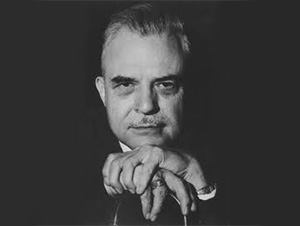Before you read this article, have you read these 5 books? Get the reading list to base your life on, plus 7 strategies I stole from marketing geniuses to promote your work.
Milton Erickson woke up one morning and couldn’t move his arms or legs.
The year was 1919 and Erickson’s family doctor diagnosed him with polio. Within weeks, the paralysis overtook his entire body, leaving him motionless and bedridden. The only things under his control were his eyes and mind, allowing him to do nothing except scan the confines of his bedroom.
“The boy will be dead by morning,” he overheard the doctor tell his mother one evening.
As he sat in his chair one afternoon, Erickson felt a small twitch in his thigh, his first physical sensation in months. He had heard about miraculous recoveries from polio, so he began an experiment.
Each day, Erickson attempted to reestablish the connection between his mind and body by focusing intently on a single muscle in his leg. While he did this, a nurse would manipulate the muscle. Some days the muscle would twitch. Other days were hopelessly unproductive.
After years of this unbearably slow process, Erickson somehow restored motion to his body, one muscle time. Within a decade he was functioning at full capacity. Erickson went on to become one of the most influential psychiatrists of the 20th century, most notably for his insight into the powers of the unconscious mind. He lived to be 78 years old.

Milton Erickson’s recovery reminds us that real, sustainable progress is painfully slow and boring as hell, an often-ignored truth in our get-it-yesterday culture. Today, speed and convenience constitute a duopoly that governs every facet of our lives including education (online classes), health (miracle supplements), and work (get rich quick schemes.) Lost amidst the noise is the sober truth that mastery of any task is one of the most un-sexy things you can pursue. As was the case with Erickson, progress has nothing to do with sporadic bursts of inspiration. It’s about consistency: doing the boring, innocuous work that nobody else sees or wants to do — and doing it systematically.
It’s writing 500 words a day instead of attending a seminar promising to make you a bestseller overnight.
It’s busting your ass at the gym and eating clean every day instead of trying Soul Cycle for a month and doing a juice cleanse.
Imagine asking Michael Jordan to define the day he became good at basketball — it’s a stupid question. There wasn’t a single practice or game that defined his legacy. Rather, it was the compound effect of his unrelenting work ethic. Any menial task, whether it’s shooting free throws or resisting a chocolate chip cookie, is useless on its own. But methodically repeating these behaviors transforms us in a way that individual spurts of action cannot.
Soon enough, just like Milton Erickson, we’re up walking.
Here are 5 books to base your life on, plus 7 strategies I stole from marketing geniuses to promote your work.